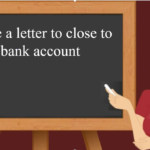Prefix: A prefix is a morpheme added at the beginning of a word to modify its meaning. It can change the word’s grammatical category or give it a new meaning.
Examples of Prefixes:
-
Un- (Not):
- Original: Happy
- With Prefix: Unhappy
- Meaning: Not happy
-
Re- (Again):
- Original: Do
- With Prefix: Redo
- Meaning: Do again
-
Dis- (Opposite or Negation):
- Original: Agree
- With Prefix: Disagree
- Meaning: Not agree
Suffix: A suffix is a morpheme added at the end of a word to alter its meaning or indicate its grammatical function.
Examples of Suffixes:
-
-er (One who):
- Original: Teach
- With Suffix: Teacher
- Meaning: One who teaches
-
-ful (Full of):
- Original: Joy
- With Suffix: Joyful
- Meaning: Full of joy
-
-tion (Action or Process):
- Original: Create
- With Suffix: Creation
- Meaning: The action or process of creating
Types of Prefixes:
-
Negative Prefixes:
- Examples: Un-, Dis-, In-
-
Reversative Prefixes:
- Examples: De-, Un-
-
Temporal Prefixes:
- Examples: Pre-, Post-
-
Quantity and Size Prefixes:
- Examples: Multi-, Micro-
-
Location and Direction Prefixes:
- Examples: Sub-, Trans-
Types of Suffixes:
-
Noun Suffixes:
- Examples: -ment (Movement), -ion (Connection)
-
Verb Suffixes:
- Examples: -ize (Harmonize), -ate (Educate)
-
Adjective Suffixes:
- Examples: -ful (Beautiful), -ous (Glorious)
-
Adverb Suffixes:
- Examples: -ly (Quickly), -ward (Upward)
-
Diminutive Suffixes:
- Examples: -let (Booklet), -ette (Kitchenette)
Prefix Examples:
-
Anti- (Against):
- Original: Social
- With Prefix: Antisocial
- Meaning: Against social norms
-
Sub- (Under):
- Original: Marine
- With Prefix: Submarine
- Meaning: Underwater vessel
-
Bi- (Two):
- Original: Cycle
- With Prefix: Bicycle
- Meaning: Two-wheeled vehicle
Suffix Examples:
-
-ment (State or Quality):
- Original: Govern
- With Suffix: Government
- Meaning: The state or quality of governing
-
-er (Comparative):
- Original: Tall
- With Suffix: Taller
- Meaning: More tall (comparative)
-
-ish (Having the Quality of):
- Original: Child
- With Suffix: Childish
- Meaning: Having the qualities of a child
Understanding prefixes and suffixes enhances vocabulary and aids in deciphering the meanings of unfamiliar words. These affixes contribute to word formation and play a vital role in linguistic expression.
A) Reversal
B) Negation
C) Quantity
Show/Hide
Answer: B) Negation
Explanation: The prefix “un-” is commonly used to indicate negation or the opposite of the base word.
A) Re-
B) Dis-
C) Sub-
Show/Hide
Answer: A) Re-
Explanation: The prefix “re-” is used to indicate repetition or doing something again.
A) Before
B) Against
C) Two
Show/Hide
Answer: B) Against
Explanation: The prefix “anti-” is used to indicate opposition or being against something.
A) -er
B) -ful
C) -ly
Show/Hide
Answer: C) -ly
Explanation: The suffix “-ly” is added to adjectives to form adverbs.
A) Comparative
B) State or Quality
C) Plural
Show/Hide
Answer: B) State or Quality
Explanation: The suffix “-ment” is used to indicate the state or quality of the base word.
A) -ish
B) -er
C) -let
Show/Hide
Answer: C) -let
Explanation: The suffix “-let” is used to indicate a smaller version of the base noun.
A) Sub-
B) Marine
C) -ine
Show/Hide
Answer: A) Sub-
Explanation: The prefix “sub-” means under, and it modifies the base word “marine.”
A) Plural
B) State or Quality
C) Comparative
Show/Hide
Answer: B) State or Quality
Explanation: The suffix “-ness” is used to indicate the state or quality of being happy.
A) To do again
B) To reverse
C) To compare
Show/Hide
Answer: B) To reverse
Explanation: The prefix “un-” in “undo” means to reverse an action.
A) -ful
B) -er
C) -tion
Show/Hide
Answer: C) -tion
Explanation: The suffix “-tion” is often added to verbs to form nouns denoting an action or process.





